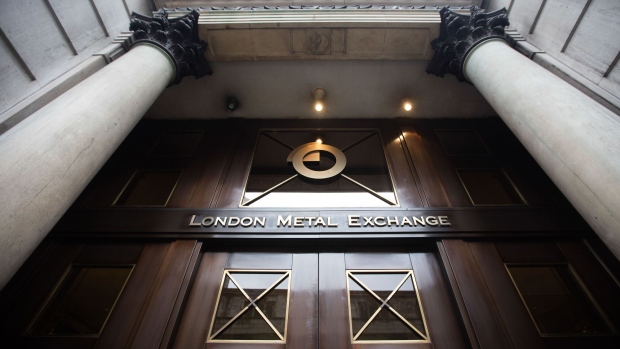Apr 23, 2024
LME Takes Aim at Traders’ Russian Metal Games With New Rules
, Bloomberg News

(Bloomberg) -- The London Metal Exchange is imposing new rules surrounding the movement of metal in its warehousing network, taking aim at a lucrative and complex trading opportunity that emerged after the imposition of sanctions on Russian metal earlier this month.
The measures announced on Tuesday are designed to undercut the economic rationale for withdrawing Russian metal that’s already on the LME and selling it back on the exchange under a new, less-desirable category.
It’s a trade that has captivated the metals world since the sanctions were unveiled, with Bloomberg reporting last week that Glencore Plc and Trafigura Group were ordering large volumes of aluminum from the exchange with a plan to redeliver it as so-called Type 2 metal. As a result, available LME aluminum stocks have fallen close to the lowest level in at least 25 years.
The trade relies on the fact that, under the UK sanctions, Type 1 Russian metal can be traded by UK citizens and companies, whereas Type 2 Russian metal cannot. The aim of the trade is to take a share of the rent that warehouses will collect from future owners, and the longer it sits there the more they stand to make.
The new rules will increase scrutiny of so-called “rent share” deals, where traders and warehousing companies split the future revenue for as long as metal remains in the same warehouse. In particular, the LME could refuse to permit traders’ applications to redeliver the metal if the deals are deemed to block other buyers from accessing it.
The exchange also sought to undermine the logic for putting on the trades in the first place. In cases where traders have redelivered metal without it physically leaving a warehouse, the exchange will allow buyers to convert it back to Type 1 metal — making it freely tradable for UK nationals.
The exchange has also expedited the process for placing Russian metal that has previously been ordered for withdrawal back into the LME system. The move reduces the paperwork required to replenish LME inventories should traders decide the play no longer makes sense.
©2024 Bloomberg L.P.






